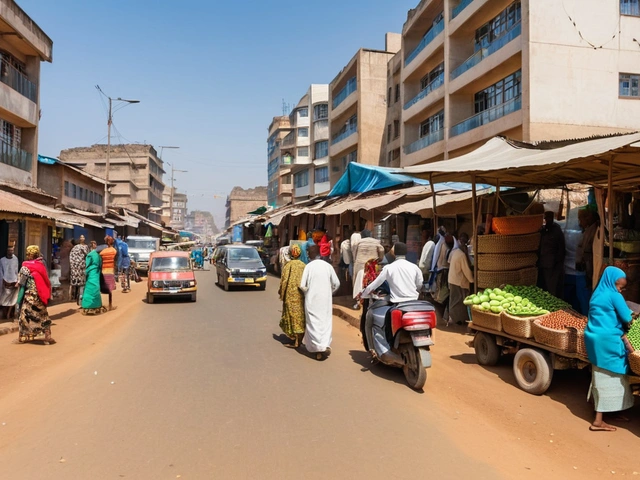Diseases in Ethiopia: What You Need to Know for Work and Life
Diseases impact many aspects of daily life and work in Ethiopia, from salaries to job stability. If you’re working or planning to work here, understanding how health issues connect to the economy and workplace is not just helpful—it’s a must.
First off, infectious diseases like malaria, tuberculosis, and typhoid still affect communities, especially in rural areas. While cities like Addis Ababa see fewer outbreaks, rural workers face higher risks. This means people might miss work more often, which not only slows personal career growth—it can mean lower overall productivity for a company or industry.
Healthcare isn’t just a personal concern. Employers actually look at sick days and long-term health trends when deciding salaries and benefits packages. For example, jobs with higher health risks might pay a bit more, but they might not offer great health coverage. Some people try to make up for gaps with private clinics, but those can get pricey fast.
If you’re an expat or local professional, you might wonder: Does this mean jobs in healthcare pay better? Sometimes. Pharmacists and healthcare workers are in high demand in Ethiopia—so their salaries can be a little higher compared to other fields. At the same time, more health problems in a population mean more expenses for everyone—think higher taxes or insurance contributions down the line.
What about job seekers? Knowing the health risks in different regions can help you pick safer places to work, or steer you toward industries that prioritize employee wellness. Some companies are getting serious about health, offering checkups or even wellness programs. It’s smart to ask about these when you’re interviewing or accepting a job.
Disease control is tightly tied to Ethiopia’s growing economy. Big economic jumps sometimes mean more crowded cities, which can boost the spread of certain illnesses. On the flip side, a strong economy creates investment in hospitals, local clinics, and health worker salaries. So, when you see articles discussing economic or salary growth in Ethiopia, there’s usually a health angle baked in there.
If you want a job that makes a difference, healthcare, clean water projects, and public health programs need people with all sorts of skills—not just doctors. Even in tech or agriculture, there are new roles focused on disease prevention, data tracking, and health education. Knowing a bit about diseases isn’t just book knowledge—it’s job smart.
For anyone chasing financial stability or planning long-term, budget for health expenses. Even basic coverage can save you a lot and help you stay in the workforce. Plus, staying healthy means fewer missed paychecks and a better shot at promotions or raises.
The bottom line: diseases affect so much more than health—they shape salaries, business growth, and your future in the Ethiopian workforce. Staying informed and making practical choices puts you ahead of the game.





